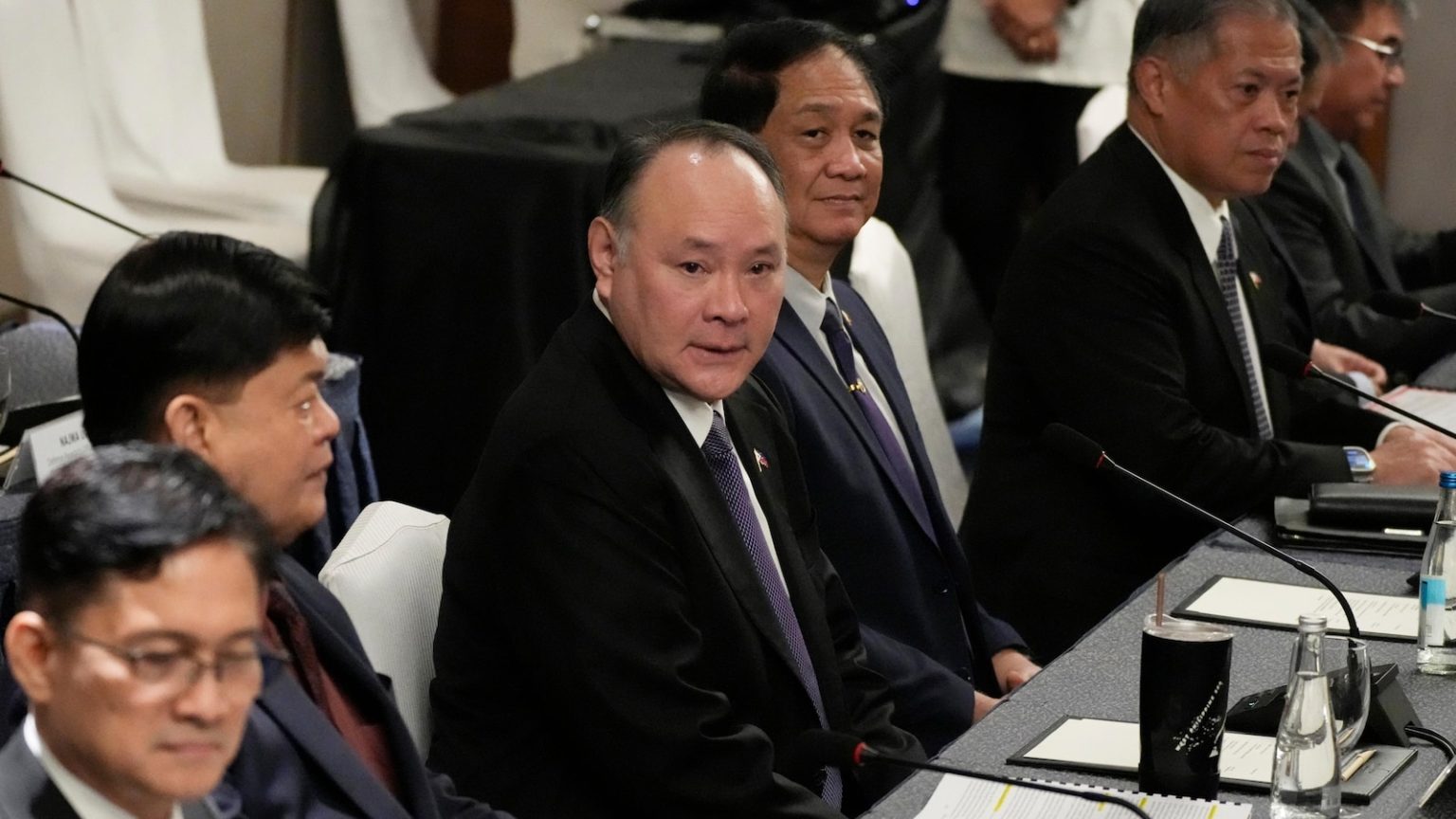Japan and Philippines Strengthen Defense Ties Amid Regional Tensions
In a significant move to address growing concerns over China’s assertive actions in the Indo-Pacific region, Japan and the Philippines agreed on Monday to deepen their defense collaboration and discuss the protection of shared military information. The meeting between Japanese Defense Minister Gen Nakatani and Philippine Defense Secretary Gilberto Teodoro in Manila highlighted the shared alarm over China’s aggressive maneuvers in the contested South China Sea and East China Sea. Both nations, who are treaty allies of the United States, have been vocal critics of China’s actions, which they view as threats to regional stability and the international order.
A Shared Vision for Regional Security
At the outset of their meeting, Teodoro emphasized the Philippines’ eagerness to bolster defense relations with Japan, specifically in response to what he described as “unilateral attempts by China and other countries to change the international order and the narrative.” Nakatani echoed this sentiment, stating that the two countries had agreed to “strengthen operational cooperation” through joint and multinational defense training exercises, port calls, and information-sharing. The discussions also included the initiation of talks on a military information protection mechanism, a critical step toward ensuring the security of sensitive data exchanged between the two nations.
Building on Existing Partnerships
The Philippines has already taken steps to secure its military intelligence and technology through a General Security of Military Information Agreement (GSOMIA) signed with the United States last year. This legally binding agreement facilitates the exchange of highly confidential military intelligence and technology, paving the way for the U.S. to sell advanced weaponry to the Philippines. The move underscores the deepening defense and military engagements between the U.S. and the Philippines, driven in large part by concerns over China’s growing assertiveness in Asia.
Expanding Defense Cooperation
High on the agenda for Nakatani and Teodoro was the “expansion of bilateral cooperation,” particularly in the context of the Reciprocal Access Agreement (RAA). Signed last year, this agreement allows for the deployment of Japanese and Philippine forces for joint military and combat drills on each other’s territory. While the Philippine Senate has already ratified the agreement, its implementation awaits ratification by Japan’s legislature. Once in effect, the RAA will enable live-fire drills and other joint exercises, marking a significant milestone in Japan’s defense partnerships in Asia. Notably, this is the first such agreement Japan has forged with a Southeast Asian nation, following similar accords with Australia in 2022 and Britain in 2023.
Japan’s Growing Military Role
Japan’s efforts to strengthen its military role and spending have been a subject of international attention. The country has announced plans to double its defense spending by 2027, a move that reflects its shift from a postwar principle of focusing solely on self-defense to acquiring counterstrike capabilities. While this expansion is driven by concerns over regional security, it is also a sensitive topic given Japan’s history of aggression in Asia during World War II. However, Japan’s deepening ties with the Philippines and other regional partners suggest a shared commitment to balancing China’s influence and maintaining peace in the Indo-Pacific.
A Strategic Partnership for Stability
Nakatani and Teodoro concluded their meeting with a firm consensus on the need to enhance defense cooperation to address the increasingly severe security challenges in the region. Their discussions reflected a growing alignment between Japan and the Philippines, both of whom view China’s actions in the South China Sea and East China Sea as direct threats to regional stability. By strengthening their partnership, both nations aim to contribute to a more secure and stable Indo-Pacific, leveraging their shared values and strategic interests to counterbalance China’s assertiveness. This collaboration is not only a step toward bolstering mutual defense capabilities but also a testament to the enduring importance of alliances in shaping the region’s future.















